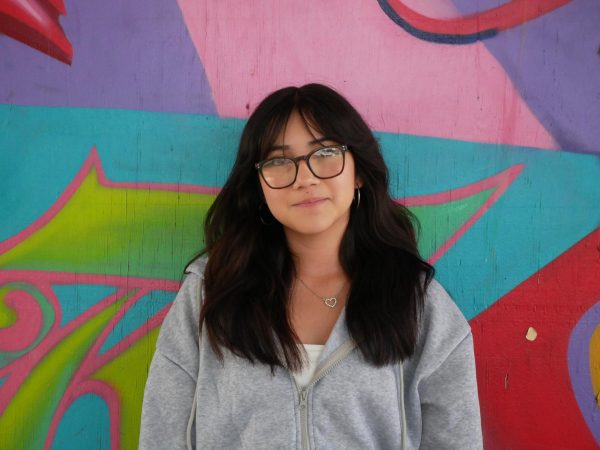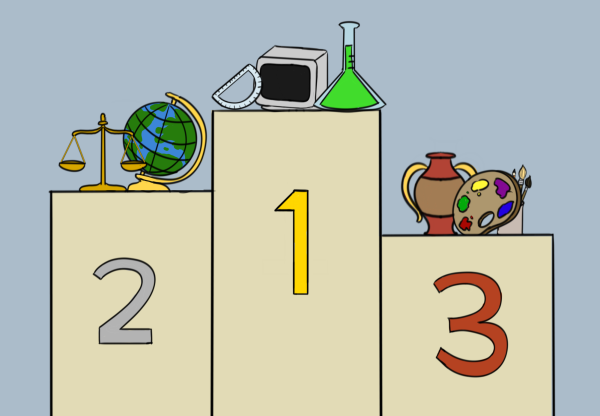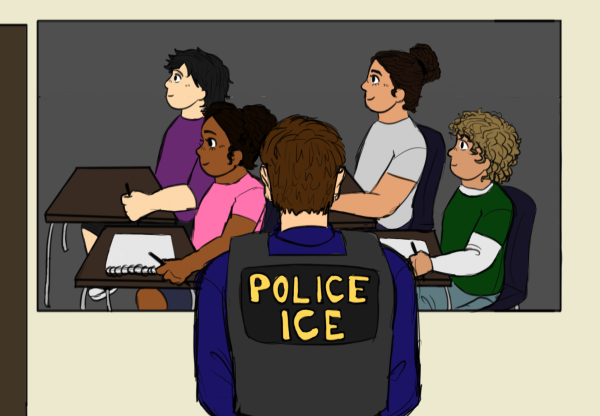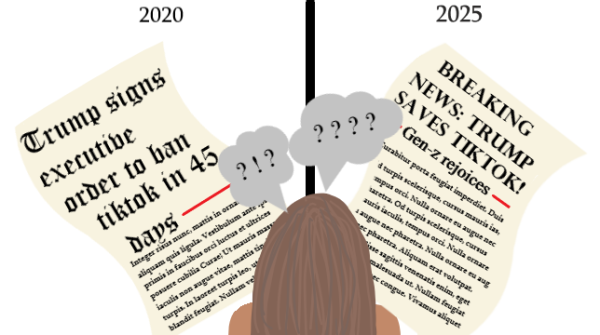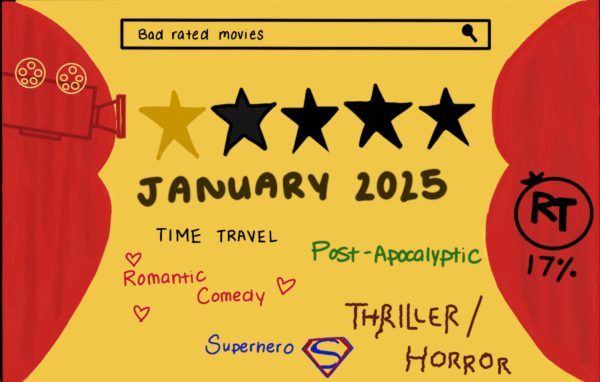Smelling the roses
The other day, my friend drove me home from school. It was a Friday, so I knew as soon as I got inside, I’d lay down and take a long nap. As she drove away, I waved goodbye and then walked over to the front door.
It was locked. “Just my luck,” I thought.
Letting out a sigh, I opened the side gate to my backyard.
I sat down on a white, plastic chair in my backyard. Immediately, I took out my phone. This had become a daily habit: exhausted after a long day, I would decompress by mindlessly scrolling through my Instagram feed.
Suddenly, I stopped. “When was the last time I just sat outside?” I asked myself. I couldn’t remember.
Troubled by this realization, I reflected on my daily schedule. I wake up at 5 a.m. to frantically finish work due that day. After school, I return home at 5 p.m., only to hunch over my desk, working on homework. Between assignments, I take a mental break by watching a video on my phone. But rather than leaving me feeling refreshed, I feel even more burnt out and drained. I realized, nowhere in this schedule had I ever allocated time to be outside.
And it turns out, my disconnect from nature is only a part of a larger generational trend. According to a study by the David Suzuki Foundation, 70 percent of 13 to 20-year-olds said that they spend an hour or less outside each day, most of which they spend as a form of transportation. After spending over seven hours within classroom walls, we lock ourselves in our rooms, straining our eyes looking at worksheets and phone screens into the late hours of the night.
To put this into context, even inmates at maximum security prisons are guaranteed two hours outdoors per day.
Coined as “nature-deficit disorder” by author Richard Louv, this trend is a serious health concern for our generation. By spending our whole lives cooped up indoors, we are putting ourselves at a higher risk of health problems including mental illness, type 2 diabetes, cardiovascular disease, and stroke.
And this makes sense. When we spend all of our time indoors, we never give ourselves time to unwind. In a review of 43 psychological studies, Michelle Kondo found that time spent outside leads to reductions in stress, evidenced by decreases in heart rate and blood pressure.
In our busy schedules, spending time outside feels like our last priority. I completely understand: this is how I’ve operated my life for the last four years of high school. But it’s time that we start prioritizing our mental and physical health.
Then, I turned off my phone and set it down.
I sat there, looking at my backyard. I watched a hawk perched on the fence, with keen eyes and claws tightly gripped to the metal pole. I watched yellow flowers softly swaying, lazy bumblebees slowly drifting among the tree branches.
And then it dawned on me, I felt at peace, something that I hadn’t felt for a long time.
Finally, my mom arrived at home. And I realized, I didn’t want to go inside. I wanted to stay in my backyard, lost in my thoughts, sitting on this white, plastic chair.
Maybe I’ll do this again next Friday, I thought, as I made my way inside.

I am a senior at Bonita Vista High. I’ve been on The Crusader’s staff for the last four years because I enjoy writing about breaking news and human...

